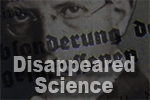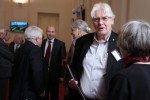Centre for Minority Studies
Hlavní stránka » pages » Research Units » Centre for Minority Studies »
This section looks at the issues that affected the Jewish population between 1938 and 1989 in former Czechoslovakia, i.e., the period of the Second Republic, that of the Protectorate of Böhmen und Mähren, the years 1945 to 1948, and the communist era. All questions are examined in a wider pan-European political, social and cultural context.
Nationality and minority studies concentrate on the history of minorities in Czechoslovakia between 1945 and 1968. The research deals with migration, the severe restrictions on the civil rights of all national minorities that followed the communist takeover of power in 1948 and the partial amelioration of draconian measures in the 1960s; it also considers the status of minorities at the time of the so-called normalization (1969-1989), and again during the period of restored democracy between 1989 and 2005. The focus is on the German, Polish, Slovak, Hungarian, Russian, Ukrainian, Ruthenian, Greek, Bulgarian, Serbian, Croatian and Roma minorities, but the condition of other ethnic minorities during this period, such as the Sorbian or Wend community, migrants from the former Soviet Union, Vietnamese, and Chinese is also explored. Inasmuch as official attitudes towards national minorities were a clear reflection of the change from a democratic to a totalitarian regime, tracking the fortunes of the various minorities is carried out in the context of the history of Czechoslovakia during the period in question, and findings are compared and contrasted with the situation of minorities in neigbouring countries and in the former Soviet Union, from where policies towards minorities emanated in the first place.
The section cooperates with other similarly oriented research centres, universities and academic institutions in the Czech Republic, such as the Faculty of Social Sciences and of Arts at Charles University, the Masaryk Institute, the Archives of the Academy of Sciences of the Czech Republic, the Sociology Institute of the Academy of Sciences of the Czech Republic, and the History Department at Olomouc University. It also works in tandem with other such bodies outside the Czech Republic. The Slovak National Museum in Bratislava and Martin and the Socio-scientific institute SAV in Košice would be cases in point. So, too, would be the Institute of Philosophy and Sociology LZA in the Lithuanian Republic, the State University in Riga, Latvia; and in the Ukraine, the State University in Uzhorod and the State University of Ivan Frank in Lvov.
Helena Nosková










